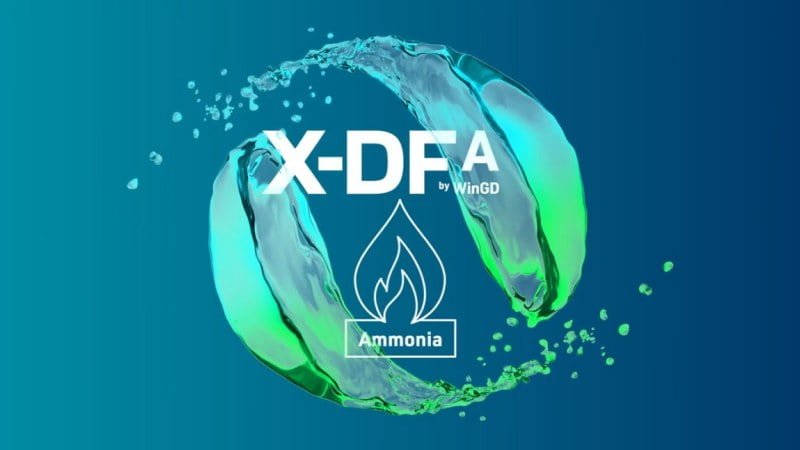Swiss marine power company WinGD has secured yet another order for its X‑DF‑A ammonia-fueled engines, marking the world’s first ammonia dual-fuel Aframax tankers. Two vessels, ordered by Singapore-based ship owner and operator AET, will be built at Dalian Shipbuilding Industry Co., Ltd (DSIC) with six-cylinder X62DF‑A engines, the newest addition to WinGD’s clean-fuel engine portfolio.
This order builds on the previous cooperation between WinGD and AET to enable clean-energy ship operations. In July 2023, the companies signed an agreement to collaborate on technology development and crew training in partnership with ALAM (operated and managed by MISC’s Malaysian Maritime Academy Sdn. Bjd) to prepare for ammonia-fueled vessels entering service. Separately, WinGD has continued to develop the safety credentials for ammonia engines, securing approvals in principle (AiPs) from four classification societies: Lloyd’s Register, Bureau Veritas, China Classification Society, and ClassNK.
WinGD Director Sales Volkmar Galke said: “First adopters of ammonia fuel are signaling confidence in the viability of both the fuel and the technology to use it. We have been working closely with AET since last year to bring this order to reality. This order, backed by our string of AiPs for our safety concepts and fuel supply system design, shows that WinGD is leading the way in bringing carbon-free ammonia power to the deep-sea fleet.”
WinGD has already secured orders for X52DF‑A engines for ammonia carriers as well as X72DF‑A engines for bulk carriers. The 52 and 72-bore variants will be delivered in 2025 followed by the 62 bore and other engine sizes from 2026 according to market needs, accommodating a wide range of vessel types from small tankers and car carriers to very large tankers. The engines operate according to the Diesel principle in both diesel and ammonia modes, with the same cylinder configurations and rating fields as WinGD’s well-established diesel-fueled X‑Engine range.
About WinGD
WinGD advances the decarbonisation of marine transportation through sustainable energy systems using the most advanced technologies in emissions reduction, fuel efficiency, hybridisation and digital optimisation. With their two-stroke low-speed engines at the heart of the power equation, WinGD sets the industry standard for reliability, safety, efficiency and environmental design, backed by a global network of service and support. Headquartered in Winterthur, Switzerland since its origin as the Sulzer Diesel Engine business in 1893, today it is powering the transformation to a sustainable future. WinGD is a CSSC Group company.
Source WinGD

